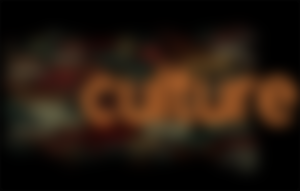A balanced view of "Clip culture" and overcoming its negative effects
Consciousness can be mosaicized and has even become mosaicized today. Our minds, focused on perceiving and analyzing the numerous and irrelevant blocks of information provided by social media addiction, sometimes distract us from understanding the wholeness. Mini flashes of information can make us unable to learn unrelated news and inputs that do not fit into our previous mental cells. What this phenomenon has become in society is called clip culture.
Clip culture and the related phenomenon of clip thinking were first explored by Alvin Toffler in the 1980s. After Toffler, both European and Russian researchers began to study the same phenomenon in various fields.

For example, the Russian philosopher Girenok characterizes this type of thinking as a specific ability of a person to respond to "just one blow". The Canadian philosopher McLuhan points out that the active use of electronic means of communication is taking humanity back to the "pre-writing age", which basically leads to the breakdown of the linear character sequence. As can be seen, researchers are quite pessimistic about this issue. But is the phenomenon of clip thinking such a bad thing?
The sources of information on a digital device are abundant. We may need to read all the messages on instant messengers and social networks, posts on forums and blogs, emails and SMS messages, take time to respond to them, and keep track of new posts as they come in. The rush of chasing such a web of information leaves absolutely no time for in-depth analysis of the information coming to the interlocutor, it only helps to reduce critical thinking for a quick glance.
It should be noted that the information we consume on a daily basis through the global internet network is often not in-depth, on the contrary, much of it is very superficial, easily perceived data. According to Russkikh, our contemporaries, and mostly young people, are no longer capable of reading serious information. Even when reading a scientific text on a smartphone screen, one will be constantly distracted by messages and notifications from various applications, the mind will switch between notifications, which greatly slows down the perception of information.
The rapid and constant interchangeability of different blocks of information in front of the eyes leads to short-term memorization of the general characteristics of the information received; we often see the expression "I didn't read too long" after a very long block of published text. This is a perception problem created both by the hunger for information consumption and by the fact that you can never see the whole text on a tiny screen.
We all experience this problem nowadays, but perhaps the greatest damage is suffered by young and young individuals receiving education. The inability to establish a causal relationship between events, the inability of students to retell articles in practical classes in a meaningful way, having to read from the page, etc. are direct consequences of this phenomenon. Short-term memory is an integral feature of clip thinking. It is what prevents the brain from being overloaded with too much information from all sides. In terms of education, however, this effect works in reverse; soon after answering a question, the student cannot repeat the information presented, because his brain has already cut it out and labeled it as unnecessary and erased it from memory.
Without conscious memorization of specific material that is reinforced through note-taking, creating flowcharts, speaking aloud and retelling, information found on the internet, even in print, will not enhance the student's cognitive abilities. This information will exist separately from his consciousness, arriving there in a dosed form only for the time it is spoken while reading the text. Upon completion of the answer to the question, the information will be deleted to make room for a thousand text messages from various internet applications.

The most negative aspect of the "clip thinking phenomenon", which also has positive aspects such as protecting the brain from overload by filtering the dense flow of information and breaking it down into small pieces, making it easier for us to multitask, and enabling us to be agile in problems that demand a quick response, is that it leads to self-deception and vulnerability to the influence of advertising, marketing and manipulative political gurus, because the ability to critically approach the information received has already begun to be lost.

